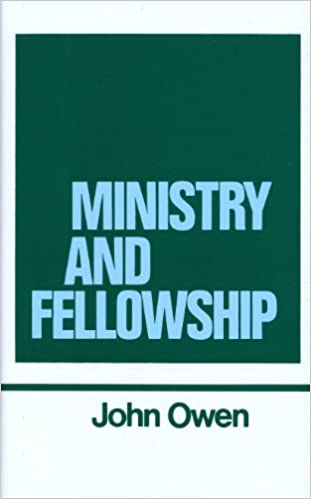A Brief Book Summary from Books At a Glance
by Steve West
Editor’s Note: Most of our readers will already be at least somewhat acquainted with John Owen (1616-1683), “the prince of Puritans,” but it is not likely that many have read him extensively. His works are not only voluminous – they are tightly packed and deeply considered. Owen is neither quick nor light reading!
Today we continue our year-long series of summaries of Owen’s famous works. We trust these will be of help in introducing and/or increasing your acquaintance with this giant Puritan theologian.
Summary, Part 1
The Duty of Pastors and People Distinguished
All of the godly patriarchs instructed their own families in the things of God that were revealed to them. Beyond the law of nature, they had special revelation from God to lead their families in proper worship. When God gave the law to Moses, there was a shift to a community of people who were governed in their worship by the prescriptions of the covenant. In setting up the world God gave two lights to govern the day and the night, and in setting up his church he gave the lights of the Old and New Testament to hold dominion in their proper eras. Under the law, the worship was either moral or ceremonial/typical. People had the great responsibility of coming to hear the word of God and meditate upon it, and then teaching it in their homes. Having public teachers did not relieve parents of their duty to instruct their families in the things of God. Priests were to instruct people on the requirements of God’s law and warn them against evil.
Just as in the Old Testament, it is clear that in the New Testament there are some who are set apart in a public role to be teachers and instructors. The question before us is what remains for the rest of God’s people to do for their own edification and for the edification of others. Despite the claims of Rome, ministers of the gospel are not priests in the sense assigned to them by Rome. Every minister in Christ is a priest, but that is because they are in Christ and not because of their office. In fact, every Christian is a priest. As priests, we have access to God and are to draw near to him. Christ is the great high priest, and we are all priests by virtue of our union with him. We are priests on the basis of our holy unction in the Spirit. By grace, we offer sacrifices of praise and thanksgiving, prayers, and good works. We do not have the right to bring sacrifices to God on behalf of others, but we are empowered to offer them on our own behalf through Christ. These incredible blessings and privileges are not owing to our own goodness, but to the grace and righteousness of Jesus. . . .
[To continue reading this summary, please see below....]The remainder of this article is premium content. Become a member to continue reading.
Already have an account? Sign In
